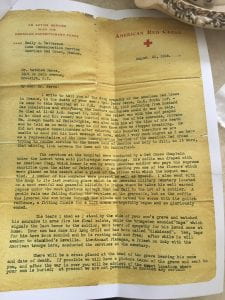The vast potential and promise of Artificial Intelligence (AI) and machine learning have caught the attention of the world, and China is no exception. China’s government is eager to act decisively and reap the benefits of these burgeoning technologies. It publicly announced a new comprehensive strategy to develop and regulate AI with its A Next Generation Artificial Intelligence Development Plan (2017) and has steadily released increasingly fleshed out pledges and guidelines ever since.
Author: Stony Brook Undergraduate History Journal
An Analysis of Shri Chanchal Sarkar’s Journey Through Pakistan
This piece analyzes the primary source recordings of Indian journalist Shri Chanchal Sarkar’s journey through Pakistan during the conflict between the East and West of Pakistan.
Preserving History – An Interview with Director of Special Collections and University Archives Kristen Nyitray
Kristen Nyitray is the director of Special Collections and University Archives at Stony Brook. In this interview Joshua Berkowitz sat down with Ms Nyitray to discuss her work, as well as the interesting pieces contained in the collections and archives.
Unwitting But Willing: Mario Cuomo’s Complicated Relationship With Mass Incarceration
Mario Cuomo’s threat to flood United States Attorneys offices across the state with arrested drug suspects in 1990 was a long time coming.[1] Despite 7 years of both New York and the Federal Government expanding law enforcement and carceral infrastructure, Mario Cuomo, the 52nd Governor of New York, was faced with ever increasing crime rates and prisons that were perpetually overcrowded.
Rome’s Worst Defeat
The Second Punic War began when Hannibal Barca, Ancient Carthaginian General, marched on Rome in 218 B.C.E. The goal of this move was to create a second war front that would tie up Roman armies that would have otherwise been sent to the front in Spain. The battle of Cannae was the third battle fought in this attack on the Italian peninsula and the most devastating to Rome.
The Role of the Kingdom of Hungary in the Global Middle Ages
Located between Latin Christendom to the west, the Byzantine Empire to the south and nomadic “pagans” to the east, the Kingdom of Hungary under the Arpad Dynasty (1000-1301) was an important frontier region in Europe. This paper examines the Kingdom of Hungary as an exemplar of the global Middle Ages.
Change in the Countryside: The Granger Movement and the Rural Community
The Grange, more formally known as the Patrons of Husbandry, was an organization founded in the late 1860s in response to the technological advancements and eastern investment that followed the American Civil War.
Letters for the Dead: Wartime Condolences to the Bereaved
Over a hundred-and-one years ago, my ancestors received the news that every military family dreads- the news that on August 19th, 1918, my Great-Great-Uncle Peter was killed in the Great War.
History of the Esopus Wars: Part II (1663-1664)
The second installment in a two-part series focused on the Esopus Wars of the seventeenth century.
The History of the Census as a Political Tool
The census has occurred without fail for the past two hundred and thirty years, but last year’s twenty-fourth Decennial Census posed unique challenges for those involved in such a massive undertaking.









